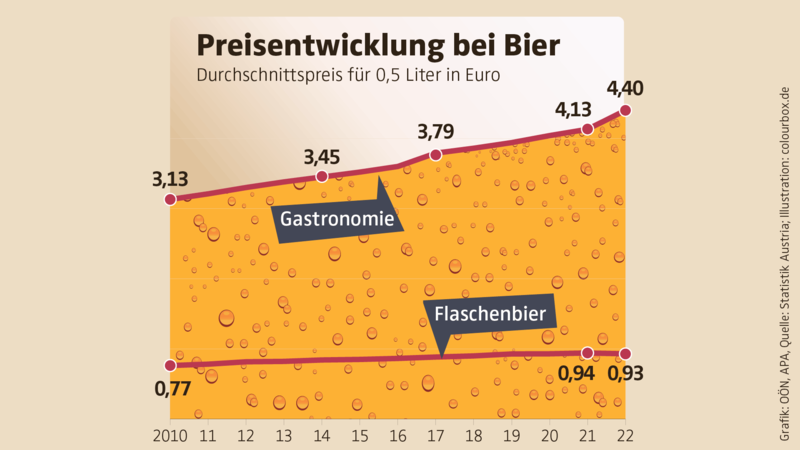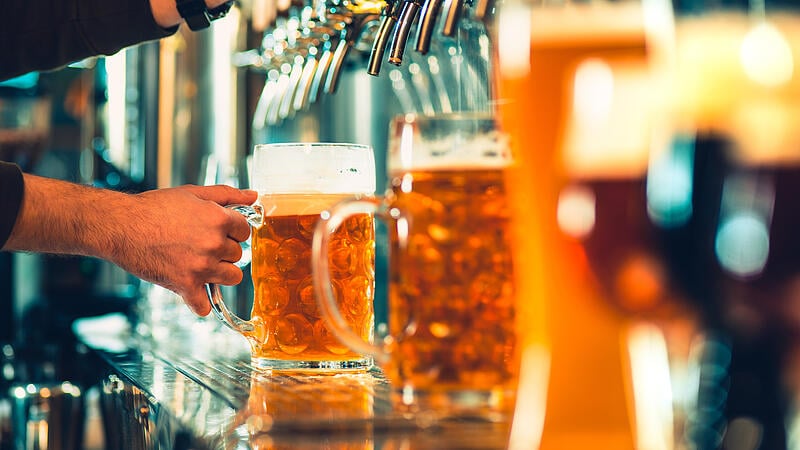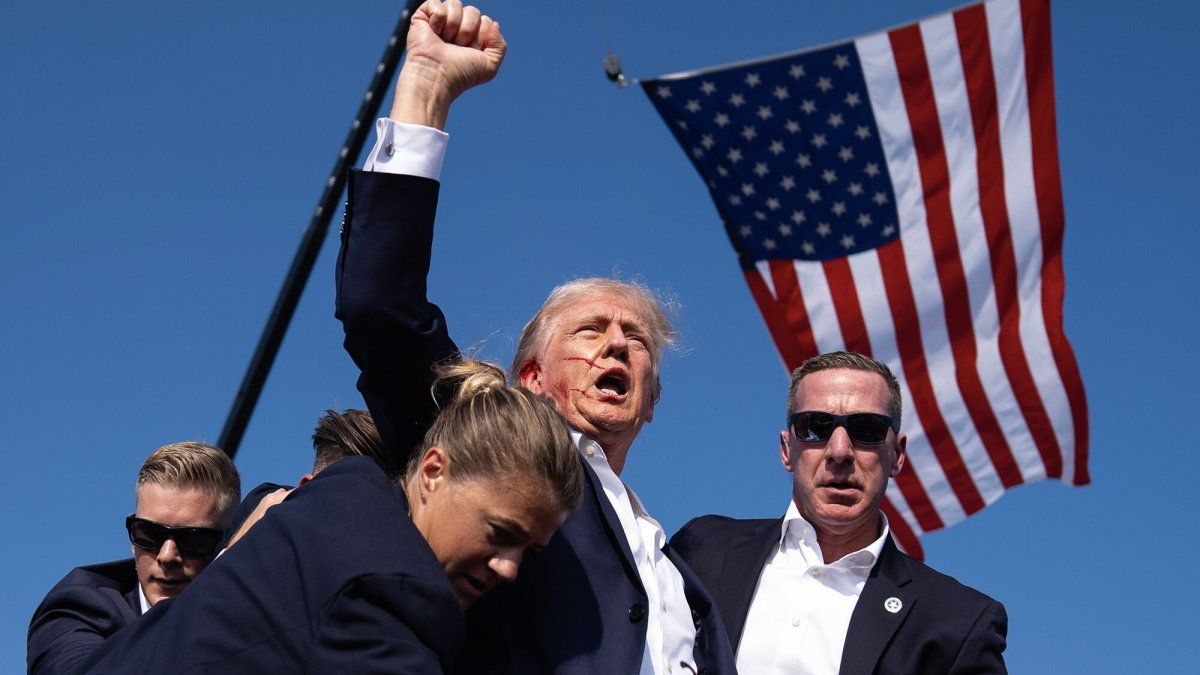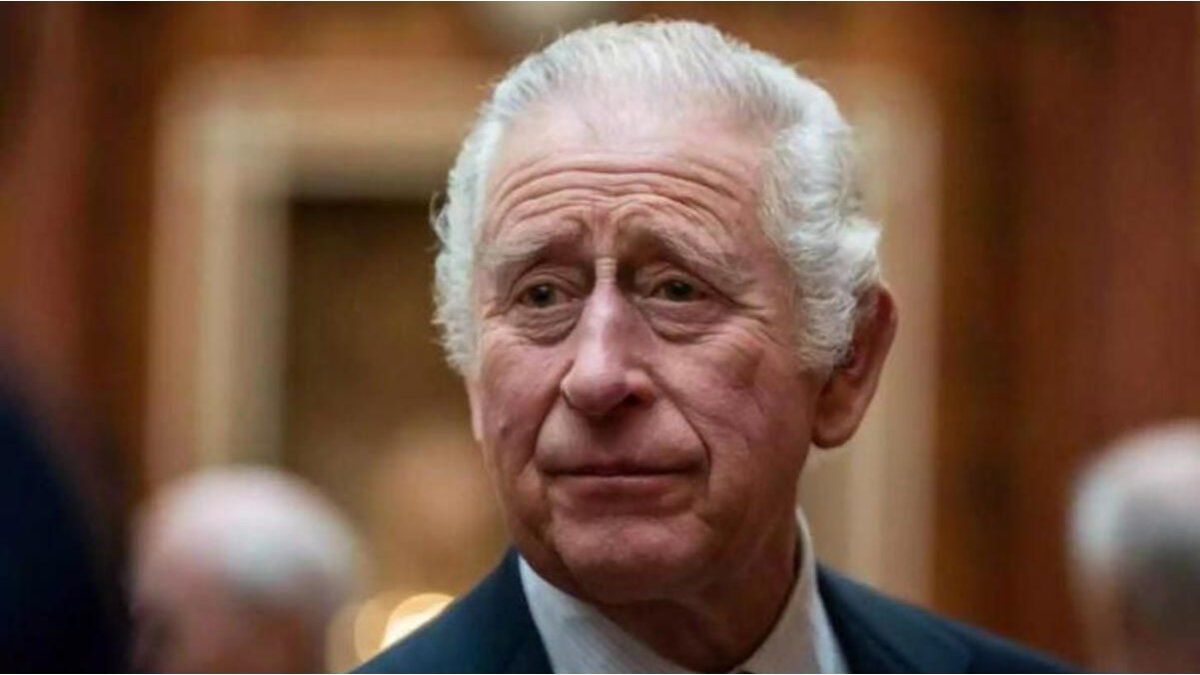Image: colourbox.de

Image: OÖN/APA
There was a lot of excitement in January when Austria’s market leader Brau Union announced that beer prices in the catering trade would increase by an average of 9.5 percent in February. The Association of Austrian Breweries defended the procedure when presenting the brewing balance sheet on Tuesday – and again called for tax cuts.

Image: OÖN/APA
“Price increases are the biggest challenge, especially for small and medium-sized breweries,” said association chairman Siegfried Menz. That applies to all areas. According to an internal survey, energy costs 100 percent more than in 2021. Cleaning agents have become 50 percent more expensive, raw materials by 40, packaging by 20.
There have also been price increases for pallets, transport and fuel, emphasized Menz and the association’s managing director, Florian Berger. They called for VAT on draft beer to be halved and beer tax to be halved to the level of neighboring countries. A beer tax of twelve cents is due in Austria for half a beer. In the Czech Republic it is eight cents, in Germany five cents. Menz: “We’re not getting any money, neither with tax breaks nor with price increases.”
Industry representatives gave mixed reviews for the previous year. At 10.29 million hectoliters, the total output of the 329 breweries exceeded the pre-corona level (9.9 million). Lager/March beer remained the most popular type with six million hectoliters. Breweries deliver 80 percent of the volume to the food retail trade, 20 percent to the catering trade.
In the past, the relationship was often balanced. “The shift in consumption from gastronomy to one’s own four walls is a reality,” said Berger. The draft beer output is still a fifth below the level of 2019. The fact that the prices for draft beer are rising more than those for bottled beer is also due to the longer distribution channel in the catering trade. He understands that many are critical of five euros for half a glass, said Berger.
“Beer must remain affordable”
The changed consumer behavior is also confirmed by Ewald Pöschko, managing director of the Braucommune Freistadt with a recent output of 155,000 hectoliters. Grocery stores receive four out of five drinks. There, the brewing commune recently increased the prices by nine percent, in the gastro it was six percent. “Beer must remain affordable,” says Pöschko. However, host deaths cannot be denied. “Two innkeepers that I have supplied with beer are currently closing.” An extension of the beer tax scale from 50,000 to 200,000 hectoliters would bring relief for smaller breweries.
Hubert Stöhr, head of the Schloss Eggenberg brewery in Vorchdorf, is also hoping for a recovery in gastronomy. Half of the 140,000 hectoliters goes to landlords. Pöschko and Stöhr welcome the fact that the association wants to introduce a new 0.33-liter reusable bottle at the end of 2023: In Upper Austria, this is already common practice.
Source: Nachrichten




